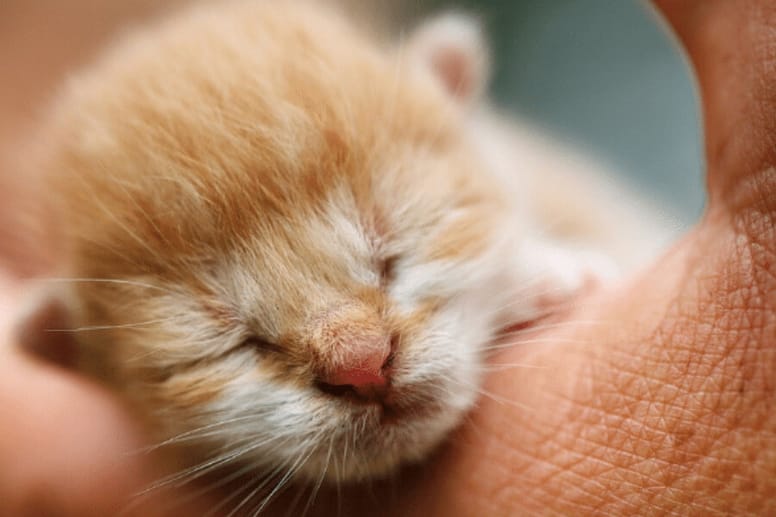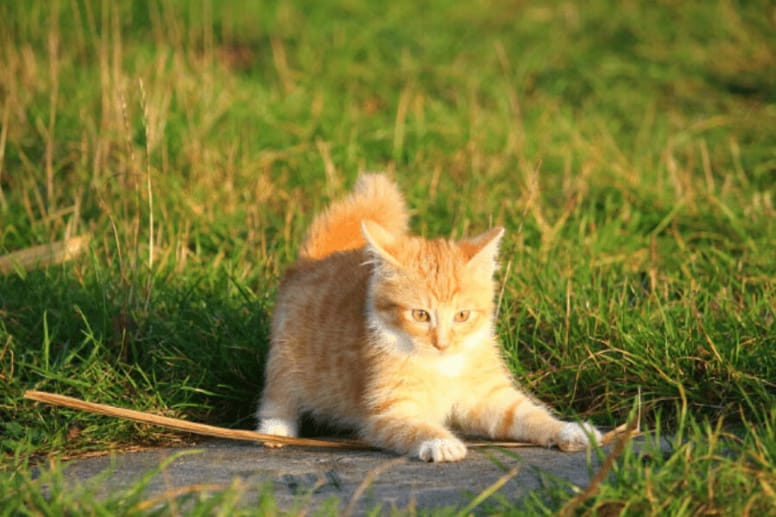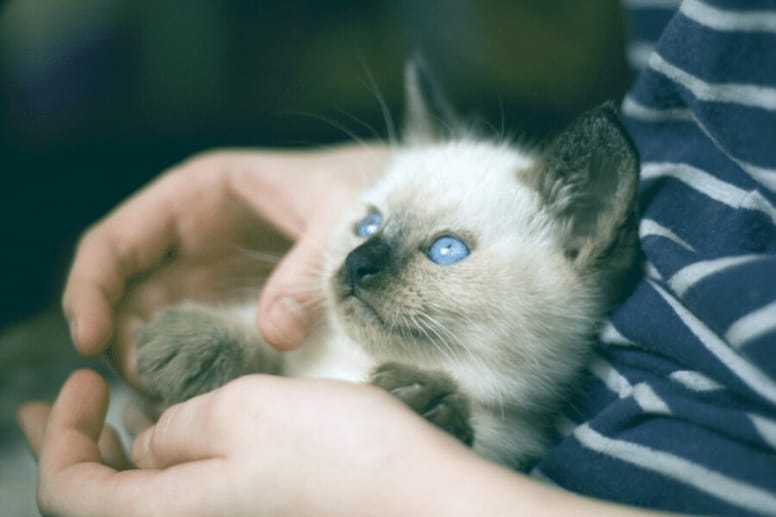It’s going to be an exciting day when your new kitten moves in. To make sure that the relationship with your new kitty gets off to a decent start, we have put together a list of advice and tips to benefit both you and the cat. Follow these different stages of kitten care:
New-born kitten care under 8 weeks old

First of all, a kitten up to the age of 8 weeks should remain with the mother cat. A tiny kitten isn’t able to adjust their own temperature and at this age need to snuggle up to their parent. At this age too, they are still developing their leg co-ordination and vision. If however, you do foster or take in a tiny kitten less than 8 weeks old, you will need to take special care. Certainly ask for medical advice about how best to look after her. She will need a minimum of bottle feeds every 2 hours up to around 4 weeks old.
How to care for a kitten between 8 to 11 weeks of age
By around the 8 week mark, a kitten should be weaned away from its mother. She should be eating special kitten food which is normally rich in protein for energy and is easily digestible. During this period, several other change will begin to take place. As her motor skills develop she will become more active. Your cute bundle of fluff will be exploring, playing, jumping and running. Of course this is a very enjoyable period of owning a tiny kitten but she must also be supervised most of the time. Keep her close to you but begin to set boundaries too.
Kitten care between 2 to 4 months

During this phase your kitten will grow more rapidly. You will also notice her high energy levels, at around 3 times more active than an adult cat. To compensate for this, she will also need high-quality food with a decent protein content, 3 to 4 times a day.
Between 4 to 6 months
As your kitten approaches the adolescent stage she will also mature sexually. It’s the right time to think about having her spayed, or neutered if you have a male kitty. If you don’t have this done, expect your kitten to develop some nasty habits such as spraying his territory. Similarly, you certainly don’t want any accidental litters from a very young cat.
Socialise and Reward
Because the way you train and socialise your kitten affects her behaviour and interaction as an older cat, it’s important to get this right. Likewise, introducing her to as many different situations and experiences as possible as a young kitten will prevent her being a nervous cat. In this way, any social exposures such as to strangers, walking on a leash and even loud noises will all become positive experiences. Reward her good behaviour and responses each time with praise and cat treats.
As her new parent, it’s your duty to introduce her to the world around her. Why not try to familiarise her with some of these socialisation and training ideas:
# stroke and pet her often
# introduce her to weekly grooming and combing sessions
# make sure she has plenty of kitten-friendly toys to keep her enthralled
# allow her to walk on different flooring surfaces, such as carpets, ceramic tiles, concrete and grass
# invite your friends for a visit so she realises that strangers are nice, cat-friendly people too
# play music and make loud noises around her
# let her meet other kittens and cats – only when they’ve had all vaccinations of course

Preventative health care plan
An important role in kitten care is to make sure she has a healthy upbringing. Preventative health care plays a necessary part.
Take your kitten for an early health check – this will help to socialise your kitten and t make sure she’s not afraid of a visit to the surgery
Worming and treatments for other parasites – it’s necessary to have your kitten de-wormed regularly. Likewise, treatment for fleas will probably be needed. Topical solutions to prevent fleas can usually be applied to young kittens from an early age.
Kitten vaccinations – First inoculations for distemper, rabies and feline leukaemia generally begin at around 8 weeks old. Follow-up boosters are given until around 4 months old. Preventative vaccinations may be advised on an annual basis.

Raising a new kitten is one of the most enjoyable periods of owning a pet. However, it’s also a time that involves a lot of responsibility too. Fortunately, all the care and love that you shower on your new kitten is repaid by snuggles and cuddles with your new kitty.



